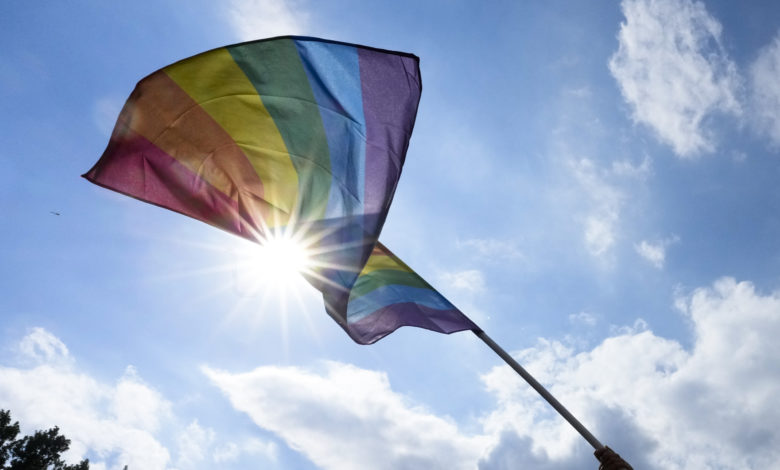Kansas City considers becoming LGBTQ sanctuary city

KANSAS CITY, Mo. (AP) — A Kansas City Council committee will consider a resolution on Wednesday that would designate the city as a sanctuary for people seeking or providing gender-affirming care, even as the state’s attorney general is proposing a new restrictions on the procedures for adults and children.
The resolution, which was proposed by LGTBQ advocates in Kansas City, says the city will not prosecute or fine any person or organization that seeks, provides, receives or helps someone receive gender-affirming care such as as puberty blockers, hormones and surgery.
It also says if the state passes a law or resolution that imposes criminal or civil punishments, fines, or professional sanctions in such cases, Kansas City personnel will make enforcing those requirements “their lowest priority.”
The resolution comes as a judge is considering a proposed emergency rule from Missouri Attorney General Andrew Bailey that would require adults and children to undergo more than a year of therapy and fulfill other requirements before they could receive gender-affirming treatments such as puberty blockers, hormones and surgery as puberty blockers, hormones and surgery.
If the council’s Transportation, Infrastructure and Operations Committee passes the resolution it could go before the Kansas City Council on Thursday.
Council member Andrea Bough, who co-sponsored the resolution with Mayor Quinton Lucas and councilman Eric Bunch, said that Bailey’s proposed rule is part of a larger effort by Republican-controlled legislatures in Missouri and across the country to pass bills restricting the rights of LGBTQ residents, particularly transgender people.
Bough said members of the city’s LGBTQ Commission reached out to supporters in city government for some type of response to several anti-LGBTQ proposals in this year’s Missouri Legislature.
“There comes a time when you have to speak up and say to our LGTBQ residents, especially children, who are wondering if their city and state are accepting of them, we have to stand up right now and say, ‘Yes, you are welcome in Kansas City, we will protect you.’”
Justice Horn, chair of the LGBTQ Commission, said the resolution is one of many steps needed to help transgender, non-binary and other LBGTQ residents of the Kansas City metro areas.
“We don’t know if these state laws are going to be signed, if the attorney general’s order is going to be approved,” Horn said. “We didn’t want (the state) to come after us, we want to be proactive and do what we can to protect the community. The basic message is that folks need to know we are going to do everything we can to ensure they have access to care.”
The resolution also says city personnel will not arrest or detain anyone sought by another jurisdiction for seeking gender-affirming care, respond to requests for information from other jurisdictions, or collect any civil penalties in such cases.
Horn and Bough noted that Kansas City’s police force is controlled by a state-appointed Board of Police Commissioners and any possible criminal charges in gender-affirming cases would be filed by the county prosecutor rather than city prosecutors — both of which could make enforcing the resolution problematic.
“To some extent, we recognize that it may have some limitations. … It’s a statement of our policy and our goals and will hopefully send a message to those within our jurisdiction how we hope others will act as well,” Bough said.
Bailey sought to impose his rule on April 27, prompting a lawsuit on behalf of transgender people. St. Louis County Judge Ellen Ribaudo initially granted a temporary restraining order and scheduled a hearing for May 11. That hearing was later delayed until July 20.



